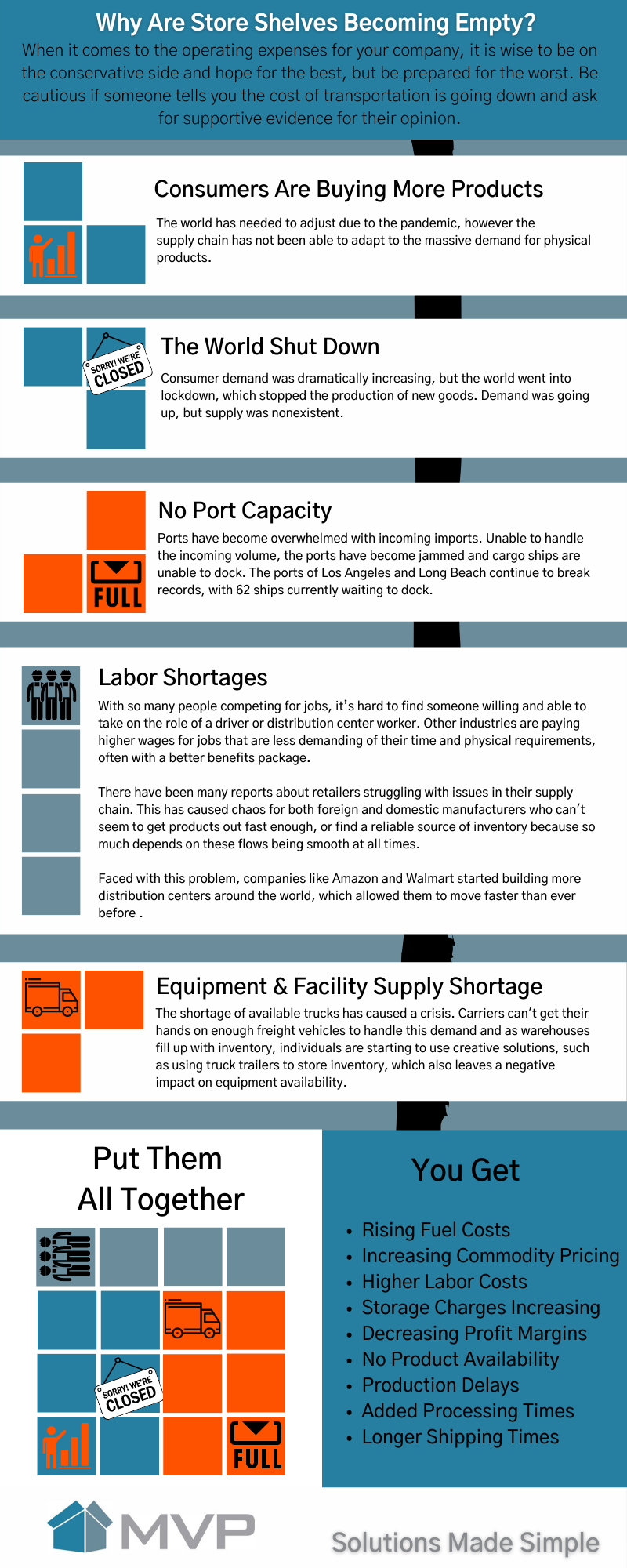With the retail supply chain under pressure, retailers are starting to feel the pinch. The logistics field is about to be hit with a new set of challenges as shelves go empty across the country.
The root cause of this problem is not panic buying, but rather much deeper-rooted problems that have been lingering since last year. Stores are starting to feel the pressure from stressors on their logistics and retailers are beginning to put limitations on purchases per customer in order to manage inventory levels more effectively. The success of a business relies on how well it handles customer service, and imposing limits on orders leads to frustration for those who want to buy in bulk.
Retailers are asking for understanding in the matter because they want to make sure everyone who wants something can get it. It’s not always easy though. If a retailer allows the purchase of too many quantities of an item, then some people will go without until there is enough inventory or retailers feel confident about ordering more stock again.
Last year’s demand levels have not yet been met, and those in charge have few options for how they can fix it besides waiting or importing goods from abroad at exorbitant prices (or both). The transportation sector has also suffered due largely to trucking shortages. When there were trucks available, orders would often be fulfilled with very high-priced merchandise, as opposed to the mix of goods customers wanted right away.
The lack of economic recovery and capacity means that trucking will continue to be a problem for years. Railroads are also operating at full capacity because there aren’t enough trains available; this makes it difficult when trying to transport goods between regions or states with limited rail service.
Many logistics managers are now taking logistics management into their own hands by transitioning from dedicated warehouse space to co-located logistics, where 3PLs share the space with retailers. Co-location is a logistics strategy that has been growing in popularity as retailers look for ways to reduce costs and inventory. For many, this means moving away from dedicated warehouses towards shared space with 3PLs or other partners; the benefits are twofold: not only do they get better access, but it also allows them more control over what gets stocked!
Coordination between all parties involved can be difficult at first. It’s crucial you have clear guidelines up front so there aren’t surprises when orders come pouring in later during peak seasons. For logistics managers, the goal is not just getting product on the shelves but doing so in a manner that keeps inventory levels manageable and meets customer demands efficiently. A logistics management strategy that includes co-location will not only give logistics managers more control over inventory but also increased ability to execute demand planning and forecasting.
Are you looking for a reliable logistics company?
MVP Logistics is the best freight company in Minnesota and the greater Midwest because we are prepared to tackle any issue — large or small — to streamline all points of the supply chain from raw material to end users. We have over 25 years of experience, so we know how to handle anything that comes our way. Whether it’s an unexpected delay at customs or a last-minute change on your order, our team will be there every step of the way. Our goal is always customer satisfaction for each shipment handled by us!
You can trust MVP Logistics as your one-stop shop for all things logistics related. From warehousing and distribution services, airfreight forwarding, ocean freight forwarding, truckload services and more – we’ve got you covered! When you work with us, you get access to industry experts who are ready with solutions that fit your needs perfectly. Contact us today for a free quote!

